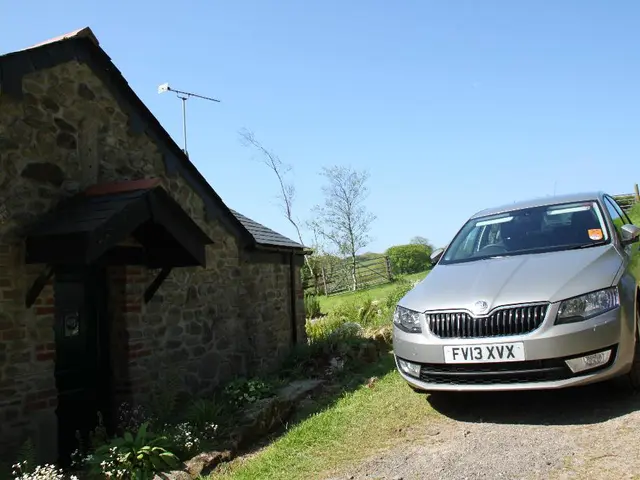EU Climate Goals Extended for Automobile Manufacturers' Compliance Adjustment - Auto manufacturers now have extended deadlines to comply with EU's climate goals.
Updated EU Emission Standards for CO2: Automakers Legally Allowed Three Years to Meet Annual Targets
In a move to provide flexibility to the car manufacturing industry, the European Union has revised its emission standards for CO2. Beginning in 2025, automakers will be allowed to average their CO2 emissions over a three-year period (2025-2027) when aiming to meet the annual targets, which have been set at a 15% decrease compared to 2021 levels for the years 2025-2029[1][3][5].
The new regulations, which received approval from the European Parliament with 458 votes in favor, 101 against, and 14 abstentions[1][3], effectively allow manufacturers to exceed their annual emission targets and compensate by outperforming in subsequent years within the three-year window[1][3]. This change aims to offer short-term relief to the industry as it navigates technological shifts and competes in a rapidly evolving market[2][3].
However, if a manufacturer fails to meet the average emissions target over the three-year period, they will still face penalties, although the specifics of these penalties have not been detailed in the current updates[1][3].
The revised rules are intended to serve as part of the EU's larger strategy to support the automotive sector through periods of significant change. Some critics argue that the flexibility provided by the new regulations could delayed progress towards clean transportation and increased electrification, potentially impacting the EU's industrial leadership and overall emissions reductions[2][3].
The new emission standards for CO2 will be published in the EU Official Journal and will come into force 20 days later[4][5]. EU countries in Brussels agreed to ease the emission limits for car manufacturers, allowing them three years to meet the targets instead of complying annually, with no immediate penalties for failure to meet annually set targets during this period[1]. Notable automakers such as Volkswagen, Mercedes, and BMW, among others, will be affected by the updated standards.
- The European Union's revised community policy on emission standards for CO2 includes a provision for the car manufacturing industry, allowing a three-year average for CO2 emissions from 2025 to 2027, to meet annual targets set at a 15% decrease compared to 2021 levels.
- As part of the EU's environmental-science strategy, the updated policy on CO2 emission standards for the automotive industry also includes finance-related considerations, allowing manufacturers to exceed annual emission targets and compensate by outperforming in subsequent years, aiming to provide short-term relief as the industry adapts to technological shifts and a rapidly evolving market.
- The updated emission standards for CO2 in the industry sector will have an impact on key players such as Volkswagen, Mercedes, and BMW, among others, who will need to align their employment policies with the new regulations, which are designed to support the automotive sector as it undergoes significant change.








